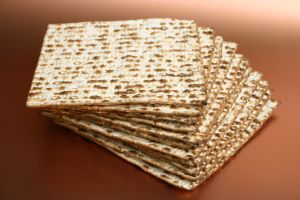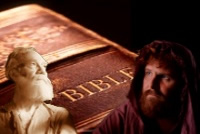

Doctrines and Principles
Eating Unleavened Bread

Question:
Should unleavened bread be eaten each day during the spring Holy Days?
Our Answer:
We believe God’s people are directed to eat unleavened bread all seven days during this feast. We base this belief of two core admonitions in scripture.
First, God’s word specifically instructs His people to do so. In Leviticus 23:6 the Almighty directed Moses to convey the following concerning this festival.
And on the fifteenth day of the same month is the feast of unleavened bread unto the LORD: seven days you must eat unleavened bread.
Earlier, God informed the Israelites that not only were they to eat unleavened bread for seven days but that obedience to this instruction was a sign between God and His people (Ex. 13:6-9).
Despite this clear truth, there are some who believe that God is not commanding that unleavened bread be consumed each day of the feast, but rather only when bread would normally be eaten. In other words, “when you eat bread during the feast it must be unleavened.” To those who hold to this belief we offer the following query. What if the command was written exactly the same way with the exception of the number of days unleavened bread was to be eaten? In other words suppose the command said:
And on the fifteenth day of the same month is the feast of unleavened bread unto the LORD: three days you must eat unleavened bread.
Or perhaps it said “five days you must eat unleavened bread,” or “six days.” How would God’s people understand this command if the number of days was not seven? What would they think God meant then? It is doubtful that anyone in God’s Church would think the Almighty didn’t mean exactly what He said. However, somehow when it says “seven days you shall eat unleavened bread” we begin to become “creative with a very clear Biblical injunction. It is interesting that the Protestant world makes a similar mistake when it comes to the day on which they worship. God commands that His people keep the seventh day holy. However, they reason that it is not the seventh day that is to be kept but rather one day in seven.
Perhaps an even more poignant reason for eating unleavened bread all seven days of the feast is revealed in what this act symbolizes. The Bible makes it abundantly clear that leaven is a type of sin. Therefore, by removing it from our lives we are symbolically removing sin from our lives. However, simply removing sin is not enough. God’s people must not only reject sin--they must also embrace righteousness. The apostle Paul put it this way.
Therefore let us keep the feast, not with old leaven, neither with the leaven of malice and wickedness; but with the unleavened bread of sincerity and truth. (1 Cor. 5:8)
Here Paul is saying that just as you remove leavening (a type of sin) out of your life for seven days, you must put something (sincerity and truth) in its place for seven days. In other words for each day of the feast we are to remove that which is leavened and replace it with that which is unleavened—both physically and spiritually. Just as God’s people go without leavened bread for seven days, they must also partake of unleavened bread throughout the feast.
 Print
Print




